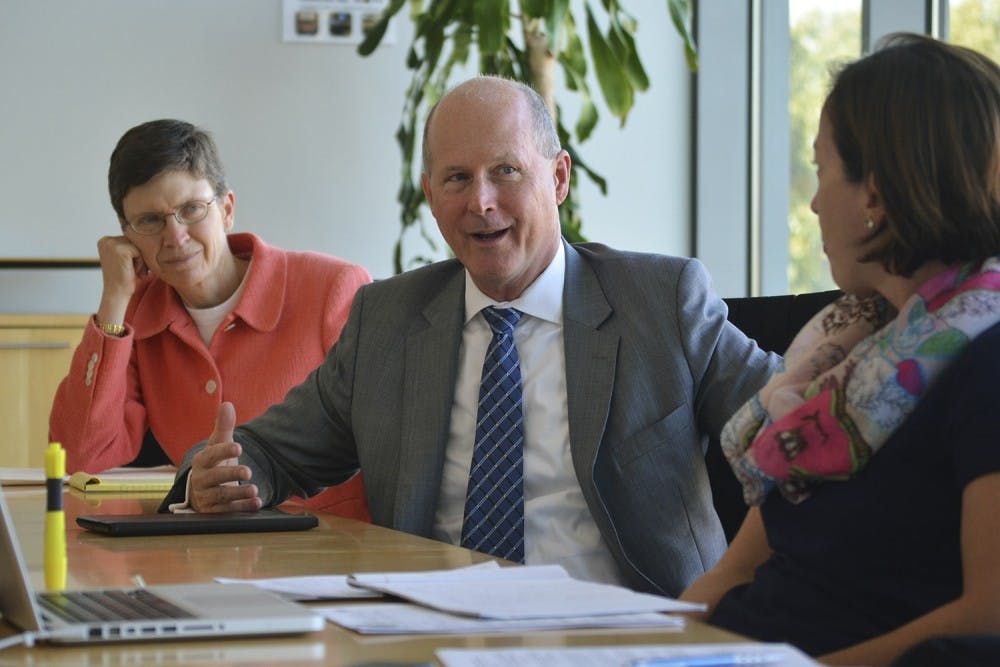In August 2013, Provost Jim Dean and Bubba Cunningham, director of athletics, organized the Student-Athlete Academic Initiative Working Group, which aims to improve student-athletes’ academic experience at UNC.
“The qualifications of students when they come in are really important to their success, so we need to make sure that we are making smart decisions there,” Dean said during the group’s meeting Tuesday.
“A vast majority of these student-athletes aren’t going to play professional sports — not here or anywhere.”
The work group included Vice Provost for Enrollment and Undergraduate Admissions Stephen Farmer, who led a majority of the meeting with his discussion of the admissions process for student-athletes.
“The rough framework that we have has been around for a long time,” Farmer said of the process.
The Department of Athletics holds 160 spots in each class for athletes. Farmer told the group the admissions office has worked to raise the academic standards for these students.
Each year, some of the student-athletes admitted with the athletics department’s recommendation are so far from UNC’s admissions standards that they go through faculty review before receiving an offer.
“Starting in 2011 and 2012, we started to look very carefully at thresholds we had been using for faculty review,” Farmer said.



